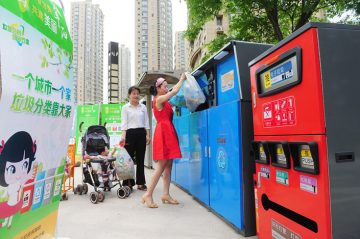
Over the past few years, the Chinese government has started to notice the enormous garbage problem in the country and has planned to implement new policies rectifying this issue.
China has implemented a new residue system in “102 residential communities, 17 cities, including Beijing, Shanghai, and Guangzhou,” according to Ge M. and Ren Q., two reporters from Caixin, a Chinese news publication. However, these efforts seem rather pointless as people fail to separate their waste properly. This is an issue caused by the residents’ lack of knowledge about the categories of wastes, since now, other than being separated into either recyclable or non-recyclable, categories such as hazardous and biodegradable kitchen waste are added.
Due to the slow progress and lack of participation from citizens, authorities have come up with several ideas to resolve the issue. Some believe that simply educating people on the classification of wastes would be enough, while others argue that fines and other punishments will be needed for those who do not classify their wastes properly.
Surprisingly, the more rural and developing cities and provinces in China have demonstrated more significant progress in garbage classification than other major cities. Jiangxi province, for instance, has exceeded the government’s expectations. After the implementation of new policies, there has been less garbage collected, as more waste is properly reused or recycled such as in Dongyang, where over 99 percent of waste was classified correctly.
According to Ge M. and Ren Q., “the recycling rate in 46 cities should reach 35% by 2020.” China hopes for a significant improvement in the correct classification of waste as it continues to raise awareness among the Chinese citizens of issues regarding pollution and the consequences of inadequate waste disposal.
For further information, click here.